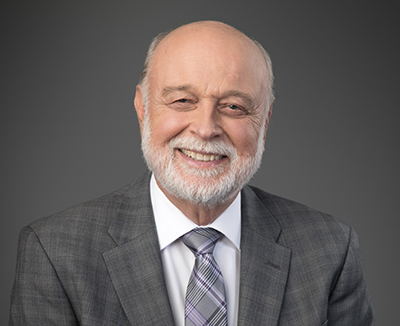 |
| March 2018 |
|
An ancient Chinese philosopher's thoughts on humility
Why it’s one of Loma Linda University Health’s core values I last wrote about one of our “core values” at Loma Linda University Health — Compassion — two years ago. Following our acronym JCHIEFS, the next in line is Humility.
Many of our other values — Justice, Compassion, Integrity, Excellence, Freedom, and Self-Control — show up as core values in other organizations, but you rarely see Humility on anyone’s list (maybe they’re too humble to claim it?). Whenever we discuss modifying our list, this one always gets challenged by a few who wonder if it should be there, and others who fiercely defend it. So, what is humility? Can it be taught? Or shared? Or learned? It seems we live in a world today that wants credit for everything good and seeks to avoid blame for misfortune. A quote that comes to mind is from the late British journalist Charles Edward Montague: “There is no limit to what a man can do who does not care who gains the credit for it.” So certainly one aspect of humility is holding others up and giving them the credit for something they were involved with. That is certainly the mark of a true leader, a characteristic sadly missing in our world today. I think humility, at its core, comes from a deep understanding of our relationship with God and the universe around us. If we see ourselves as a child of His — deeply dependent on Him for life, health, purpose and meaning — this automatically puts us into a subservient relationship. Our daily prayers — before meals, at the beginning of committee meetings, or at random — all remind us of that relationship, and that we are here for a greater purpose than our own. This certainly helps to avoid the counterpoint of humility — pride — that suggests it’s all about me. When you accept the idea that your accomplishments come from Him, and the circumstances He created around you, this certainly keeps a person’s ego in check. Another term we increasingly use today is “Cultural Humility.” This embodies the concept that much of what we see and understand and value comes from our particular cultural background. But others may see the same event or action quite differently, interpreting from their own personal and worldview. The challenge is to recognize that my cultural biases do not make something right or wrong, just different. Seeking to see and understand from another’s perspective is one of the great lessons of life, one that needs repeating, time after time. Certainly that is one of our goals at Loma Linda University Health, for both students, faculty and staff to understand another’s journey and perspective, respect it as meaningful to them, and seek to build a relationship within that framework. Somehow related to cultural humility is organizational humility. Can an organization, in particular an academic health sciences center, be humble? What does that look like? Can we own our own spots, perhaps difficult moments in our history, times when our values seemed to be clouded? Life brings these to all of us, and Loma Linda University Health is not immune to some of the current societal concerns, such as racial or cultural divides, sexual harassment, or hostile workplace relationships. My personal goal is not to deny or hide, but to own and confront these blemishes. We are human, part of a troubled world, and there are certainly behaviors we need to understand, correct and then seek forgiveness from those who have been wounded. Finally, when considering humility, I always turn to one of my favorite sayings, credited to Lao Tzu, author of the Tao. The quote refers to development and is at the core of leadership and the value of humility. It can apply to people, communities, or countries: Go To The People, That is humility. That is empowerment. And that is why we espouse it as one of our core values.
Richard H. Hart, MD, DrPH Vision 2020 – The Campaign for a Whole Tomorrow
P.S. Hope to see you at Homecoming this week. P.P.S. See a live update on the progress of our hospital construction at http://lluhvision2020.org/live-construction-feed, or walk over to the site and look for yourself.
|
March 1, 2018
Notes from the President: An ancient Chinese philosopher's thoughts on humility
Share


